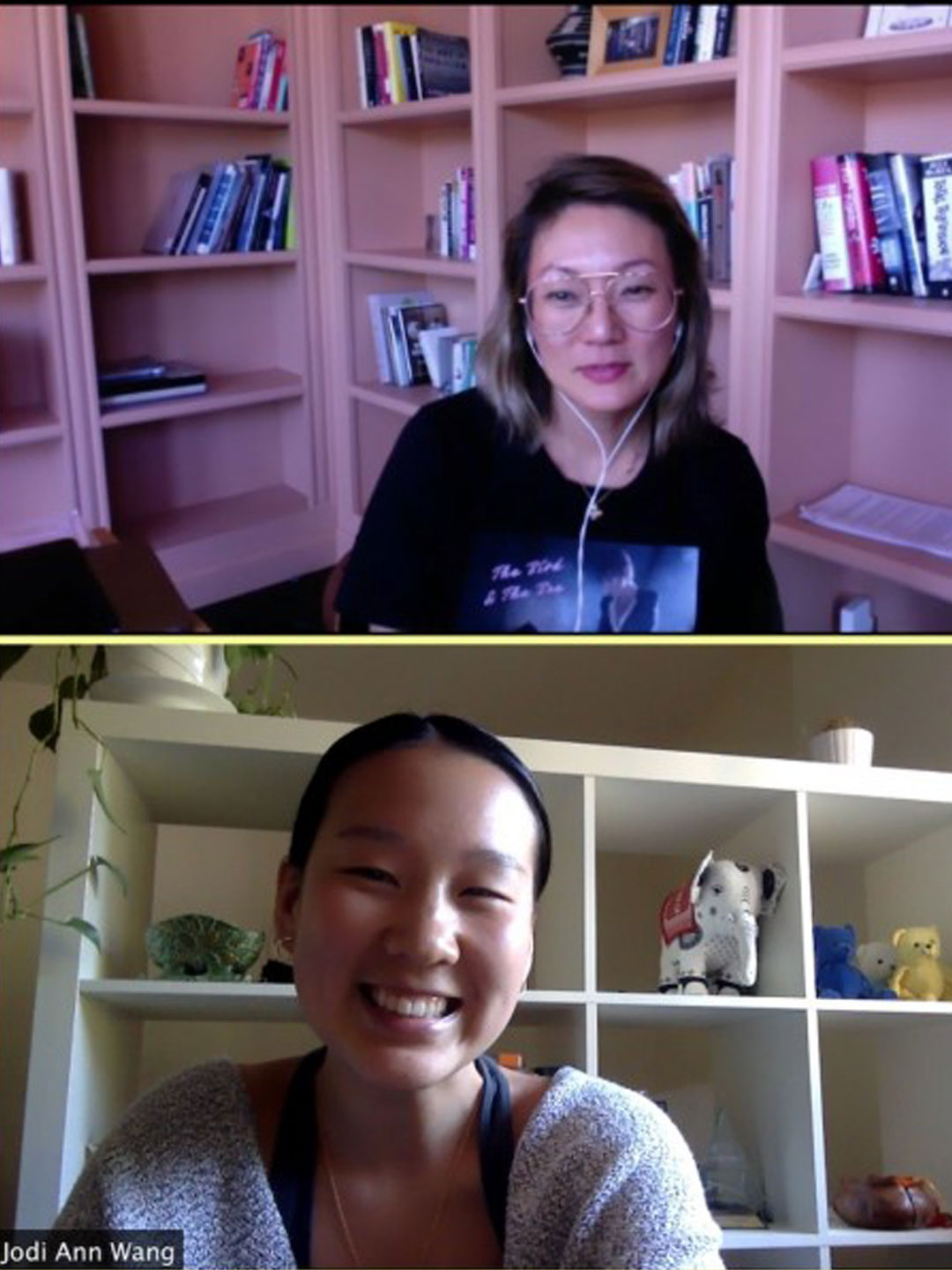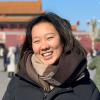
For my final contribution to Quintessential Kenyon, I wanted to reflect on the bitter-sweetness of celebrating and honoring Kenyon’s first Asian American woman Commencement speaker, television executive Samie Kim Falvey ’96. Though the 192nd Commencement celebrating the Class of 2020 has been postponed due to the COVID-19 pandemic, I sat down with Samie, virtually, for an enriching conversation on the various motifs and facets of one’s Kenyon experience. Though I missed out on celebrating my Kenyon career on campus during our senior spring, learning about Samie’s departure from and return to Kenyon (as our Commencement speaker and through service as a member of the Board of Trustees) was an empowering way to encapsulate my most treasured memories, with the guiding and encouraging words from one of our own.
I think as Kenyon students, past or present, we can all list a class that changed us in one way or another. What was that class for you?
Samie Kim Falvey: I had a lot of great classes — I remember them well and I remember my professors really well. I don’t know if I had the one class that completely changed me. I went to Kenyon knowing I wanted to be an English major because Kenyon was so well regarded, even back then, for the English department. I think that certainly studying Shakespeare with [Professor of English] Sergei [Lobanov-Rostovsky] — seeing it through his lens and being able to study it in conjunction with film — was definitely something that resonated with me and made me fuse all the different types of writing I was studying.
What was one of your most meaningful experiences at Kenyon?
I am the kind of person that really has a “best of every genre” answer. For me, the beauty of Kenyon is that it is a holistic experience: you come to a place and can specialize but you don't have to, and life continues to get [more focused] as you get older. [Kenyon has] the beauty of a place where you can play field hockey and understand how your athletic performance guides your academic work, affects your drive and ambition, while also dabbling in music and theater. It is all interrelated. At Kenyon, I saw my professors on the side of the hockey field, and I applied things I learned in the classroom to the field, or socially. The memories are so distinct and vivid.
Right — I feel like every single Kenyon student juggles different hats. Your experience is not just one stream. You can be on an athletic team, play music, and participate in theater. Your experience at Kenyon is an amalgam of everything you dabble at.
My friends who went to bigger schools would always ask me: “Does it feel small? Does it feel you are talking to the same people all the time?” It actually feels quite the opposite: because the community is so small you might serendipitously find yourself recognizing someone from a previous class, or maybe they play soccer with your roommate. The depth of those relationships is complicated and a deeper connection is formed because you know people from various tangential points. It is certainly not a giant city within a campus where everything is fleeting and you stick to your own tribe.
You also are a member of the diversity committee on the Board of Trustees. For me, diversity, inclusion and belonging have been at the heart of what I care for. How would you define these three terms as they pertain to the Kenyon experience, then and now?
The best part of those terms is that they are expansive. When we think diversity, there are obvious groups or categories that we think of and sets of ‘belonging’ you could put yourself into, but the underlying principle behind all of this is respect: the idea that you can respect and acknowledge other people’s differences and give some sense of balance to their purpose, their meaning and their community. Diversity and inclusion is not just racial, gendered or socioeconomic, but [also] about people’s background, and it actually is a huge part of what I do as a producer and what I’ve done in the field of television, which is sharing, developing and producing people’s stories. The fact that you can always become aware of a new difference that maybe you were not as sensitive to is the coolest part about it.
While there is an implied “quest for equality” underneath a lot of the work we are doing, we also have to understand that we don’t live in a world where “equal is equal,” especially in the world we are living in as we speak. This pandemic has highlighted inequalities: how [the disease] affects the health outcomes of African Americans more than other races, and what we [as Asian Americans and Asians facing prejudice and racist perceptions] are going through in the world. The silver lining to a lot of the cultural and geopolitical struggles of the last several years is that we, for the most part do strive for a world where there is more sensitivity, understanding, and desire for wanting to embrace differences and the culture and language surrounding them. Several years ago, there was no representation, conversation or education to be had on many topics.
I identify as being Korean American; I was born here and my immigrant experience has many similarities to everybody else’s, but also many differences. I look at my cultural experience and the meaning of my identity through a very specific prism. The big part of inclusion is not labelling or having a spokesperson. It is a tension point because on one hand we need a [representative] voice but on the other hand we need to take into account complexity and nuances. It’s a fascinating conversation and that sense of identity is really important.
What did being asked to deliver the Commencement address to the Class of 2020 mean to you?
I was completely honored. It meant a lot to me because I feel like when I was at Kenyon so much about that was learning and making mistakes. So many mistakes. It was about finding my voice, my independent thought, allowing myself the responsibility that comes with those mistakes, those decisions, and the experimentation you take part in. So, coming back and speaking at graduation felt like Kenyon had taken a child, allowed her to study in all senses of the word, allowed her to grow and launched her into the world prepared. Coming out into the world I felt that there was something I have a facility for. But there’s a huge difference between having a facility for something and being able to zero in on it and be tenacious and, dare I say, relentless. Kenyon gives you the space to apply learning and make connections. It is not a pressure that's put on you externally but something that gives you space to find. So, to me, to be able to come back as a more formed adult with something to say meant a lot also on an emotional level. Kenyon was a springboard for me to go out into a field, a business, and a life that I knew nothing about. I had an idealized vision of what I wanted, and Kenyon gave me all the tools to go and pursue that life.
We are clearly living in a state of uncertainty. Over the course of your time at Kenyon and your career, how have you chosen to navigate through unprecedented changes? How do you stay motivated and hopeful?
Since I have graduated, my friends from Kenyon and I have been through all the ups and downs together, even if we’re geographically apart. Community holds you up and makes you believe “yes, I can do this.” Don’t ever let your shared experiences go. When you navigate through a fog and cannot see past the next step, just keep going. Have confidence in where you have been and where you will go. We’ve survived so many things; I was working during 9/11. The shock of everything and the reverberations of what we are experiencing right now is not unprecedented, the pandemic is. Lastly, valuing your emotional health as much as the information you intake and protecting it will also be critical.
